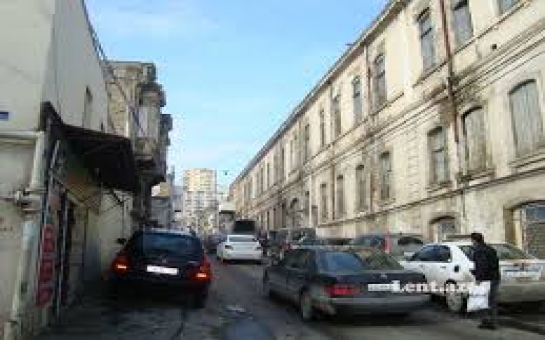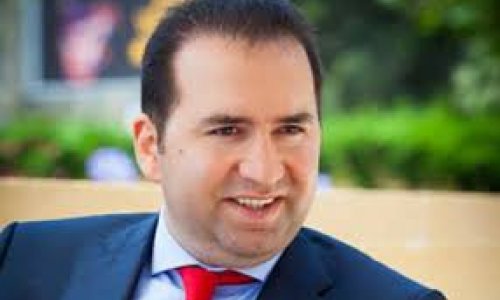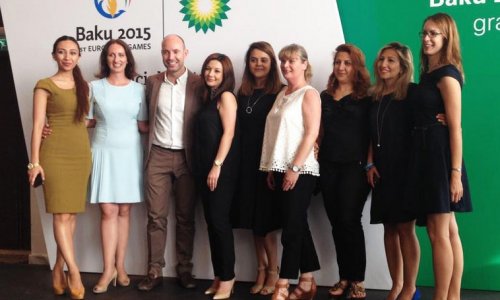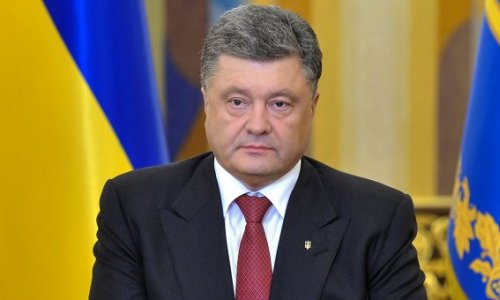The deadline is over a year away, but Azerbaijan is sprinting to complete preparations for the European Games, an Olympics-like competition for athletes from 49 European countries. In sprucing Baku up for the event, officials are taking a softer approach to urban renewal than during the run-up to the Eurovision song contest just under two years ago.
The projected cost of hosting the European Games, to be held in late June of 2015, is currently 1 billion manats ($1.25 billion). In all, 6,351 athletes are expected to compete in 19 different sports. A new airport terminal and an upgrade of the subway and bus systems are planned for Baku, along with a 65,000-person stadium and four other sports and residential facilities.
As was the case when Baku hosted Eurovision in 2012, some construction plans for the coming games are generating controversy. A particular point of contention is the planned destruction of a ramshackle, 50-hectare downtown area known as Sovetskaya (Soviet), to be replaced with “green zones.”
The makeover will impact some 40,000 people out of Baku’s total population of roughly 2.5 million. And, reminiscent of the Eurovision controversy, many Sovetskaya residents facing displacement claim they are not getting adequate offers of compensation from the government for the flats they will lose. Sovetskaya resident Elsever Hamidov told EurasiaNet.org the government offered him 1,500 manats (over $1,912) per square meter for his 20-square-meter apartment, or a total sum of 30,000 manats (over $38,250). “It is not possible to buy even a small apartment on the very outskirts of Baku with this money,” Hamidov complained.
Other residents, who have gathered twice in the thousands to protest the government’s eviction plans, say the same.
Given the negative media coverage generated by the displacement of Baku residents for the Eurovision contest, the government is now treading gingerly in its response to Sovetskaya protests. Rather than using force to break up protesters, Deputy Prime Minister Abid Sharifov and Baku Mayor Hajibala Abutalybov were dispatched to assure residents that “nobody will be moved by force.”
Deputy Prime Minister Sharifov told participants at a March 3 protest that, although the government will not increase its rate of compensation, those Sovetskaya residents who do not agree to sell their homes can stay put. “Nobody would touch you,” he pledged.
On March 27, he repeated that promise, implying to the APA news agency that the government is moving carefully and methodically with its “inventory” of the properties in Sovetskaya. At latest report, 302 families have agreed to compensation, he said, and out of that number, 72 have been paid.
But all is not as smooth for the government as may appear.
As with Eurovision, local civil society activists intend to use the European Olympics as a means to attract international attention to Azerbaijan’s poor democratization record. Currently, activists are still formulating their strategy; they expect to launch an awareness campaign by this June, a year ahead of the event’s kick-off, according to human-rights activist Rasul Jafarov, a leading participant in the Sing for Democracy campaign during Eurovision. “We have a tricky task -- how to get results and, in the meantime, not find ourselves in prison,” Jafarov said.
For all the discussion about dialogue with the Sovetskaya protesters, seven participants in a March 3 protest were sentenced to between 15 and 30 days in jail for the alleged violation of public order, according to local media. But relying on arrests – long the favorite tactic for official responses to demonstrations – now has its risks for the government.
The kickoff for the human-rights activists’ protests would follow May 1, when Azerbaijan takes over the presidency of the Committee of Ministers of the Council of Europe, the chief European body for human-rights monitoring. Senior European Union officials this month criticized Azerbaijan’s prosecution of imprisoned opposition leaders Ilgar Mammadov and Tofiq Yaqublu as “contrary to Azerbaijan's international commitments as a member of the Council of Europe.”
Azerbaijani officials claim that the country is simply observing the law. But there are reasons to expect that outside scrutiny of Baku’s practices will intensify in the months to come. Several trends have already caught the eye of watchdog groups. Most worrisome, over the past two months, suicides and suicide attempts have become a form of protest against corruption, socio-economic woes or perceived rights violations.
That overall picture makes the discord over Sovetskaya a “risky” situation for the government, commented political analyst Elhan Shahinoglu, director of the independent Atlas research center in Baku. “If the demands of the people will be satisfied, it could create a precedent for ‘the government’s weakness’ and inspire other vulnerable social groups to protest,” Shahinoglu said. “On the other hand, the government cannot use violence against people again and again.”
“This situation will create a headache for the government for some time,” he predicted.
(Eurasianet.org)
ANN.Az











